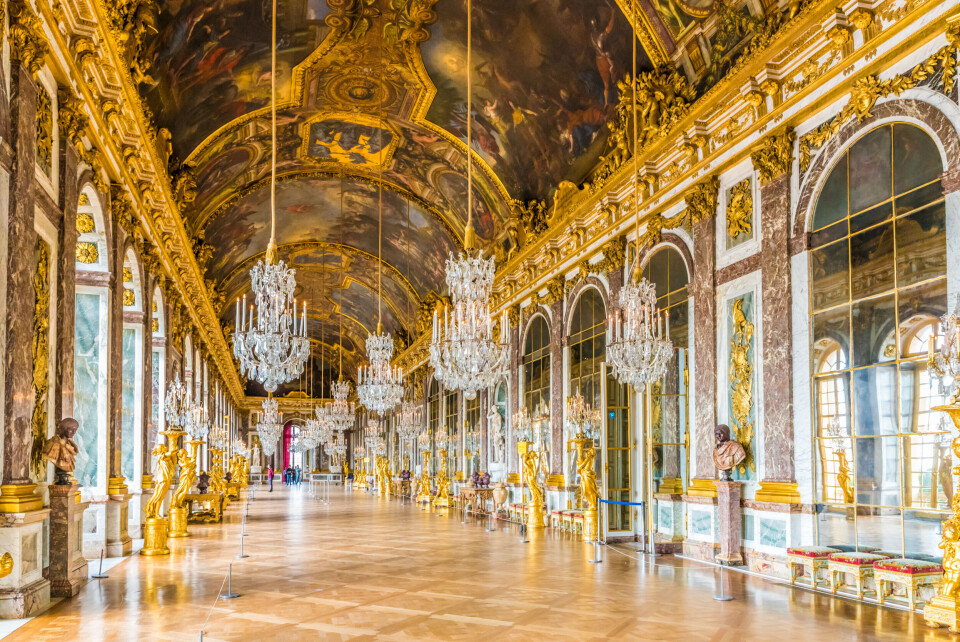-
Duck Cold! Four French phrases to use when it is freezing outside
We remind you of French expressions to use to describe the drop in temperature
-
When and why do we say le moral dans les chaussettes?
We explore this useful expression that describes low spirits
-
The origins and meaning of tirer les marrons du feu
As Christmas approaches, we look at a phrase to describe someone who takes advantage of a situation
What does ‘de’ mean in a French surname: Is it a sign of nobility?
We look at the origins of the convention and confusion over its link to the French aristocracy

Some French last names include the prefix de, meaning ‘of’ in English, which most people associated with the upper class.
Examples include the 17th century French poet Jean de La Fontaine, fashion French icon Inès de La Fressange, former prime minister Dominique de Villepin, Ministry of the Ecological Transition Amélie de Montchalin and Miss France’s founder Geneviève de Fontenay.
This prefix is called a ‘particle’ (particule, in French). It can appear in the form of de, but can also be de la, d’, du or des depending on what follows it.
It has long been associated with nobility but is actually not a reliable indicator of this as many noble families do not have it and many ‘commoners’ do.
The Association d'entraide de la noblesse française (ANF), set up to represent noble families in France, explains the confusion on its website.
“The particule was never in itself a sign of nobility,” the association notes. “However, most people tend to regard it as expressing nobility and that is why so many people adopted it.”
ANF says the de became associated with nobility because in the Middle Ages sometimes two noble brothers who shared the same surname sought to differentiate themselves by adding to their surname the name of the land they owned, which they had obtained through marriage, purchase or inheritance.
So, you would get names such as Bernard Gillet de Chalonge, designating the name plus the location of their land.
The French middle and upper-middle classes (bourgeoisie and haute-bourgeoisie) noticed this and some began to adopt the particule to try to give themselves the appearance of nobility.
A good example of this is poet Jean de La Fontaine, whose family was rich but not noble.
This trend continued into the 18th, 19th and even early 20th century, even after the French nobility was officially legally abolished. In many cases now the word following de does not, as originally, add to another surname.
It should be noted that while there are still descendants of French noble families alive today, the French nobility as a legal class ended in 1790 with the French revolution.
Origins of former French President Valéry Giscard d’Estaing’s name
Valéry Giscard d'Estaing served as President of France from 1974 to 1981. He is another good example of a person with a ‘de’ particule in their last name who is not directly descended from nobility.
In fact, his grandfather, Edmund Giscard managed to obtain by a decree from the Conseil d’Etat the right to add d'Estaing to his name because he was related to Lucie-Madeleine d'Estaing (1769-1844), who was a noble.
However nobility usually passes down the male line, meaning that Edmund Giscard was not officially considered to be from a noble line and neither, therefore, was Valéry Giscard d'Estaing.
How many French noble families are there?
The ANF has said it has registered just under 2,500 noble families with the association since its foundation in 1933.
Other estimates put the number of noble families at just over 3,000. This could mean anywhere between 50,000-150,000 individuals in France.
Wikipedia claims to have a list of all the French family names related to the French nobility.
How to use ‘de’ correctly
There are several rules related to the use of the ‘de’ in phrases.
Firstly, the de is maintained when it precedes a first name or title, such as duc (duke), monsieur or madame as in the writer Madame de Sévigné.
However, when the surname is used without mention of the first name or any title, the de particule is often taken away to avoid repetition. This is always the case where the surname starts with a consonant or ‘aspirated’ h.
So, you would talk about “Les fables de La Fontaine” (La Fontaine’s fables) instead of “Les fables de De La Fontaine.”
An exception to this is surnames that start with a vowel, in which case the de is always retained, such as: je suis allé chez d’Alembert (I went to d’Alembert’s house). The particule is also always retained where it is d’ or des or du, as opposed to de.
The same applies to surnames that are monosyllabic, such as de Gaulle. So, you correctly say: “I listened to the speeches of de Gaulle on YouTube” and not “the speeches of Gaulle”.
In these cases, where the particule is always retained, it is capitalised when preceded by another de, as in: Les mémoires de De Gaulle (de Gaulle’s memoirs).
Finally, where the last name is used in a plural form, for example to talk about several members of a family, the de disappears: “Les Montherlant” and not “Les de Montherlant.”
Related articles
Passion and power at Versailles: how French King Louis XIV ruled
Schadenfreude, secret envy: Why do the French love the British royals?
Five French stories that mix history and myth - from Caesar to Clovis
























